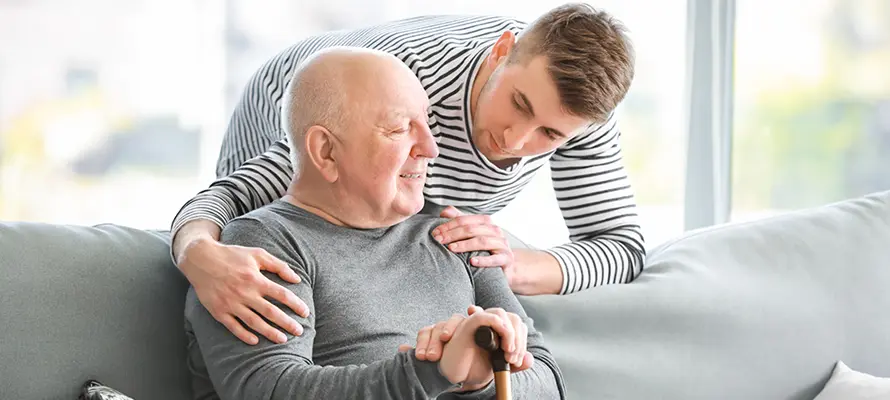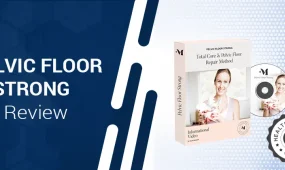As our loved ones age, it becomes increasingly important to ensure their well-being and happiness. Aging can bring about various challenges, both physical and emotional, but there are steps that can be taken to improve their quality of life. This guide will explore different ways to support and care for our aging family members.
Revamp Their Living Space
To enhance the well-being of our elderly family members, it is important to make changes to their living spaces. As people age, their needs and preferences change, so it is crucial to create an environment that prioritizes safety, comfort and accessibility.
One way to achieve this is by installing grab bars in bathrooms to provide support and prevent falls. Another way of achieving this is by getting an all in one mobility device to help them around their space. It is important to eliminate tripping hazards such as loose rugs or cluttered walkways.
Additionally, ensuring ample lighting throughout the living space can help improve visibility and reduce the risk of accidents. By implementing these alterations, one can create a living environment that promotes the health and happiness of our elderly loved ones.
Visit Them Often
Frequent visits are important for the well-being of our elderly family members. Regular social interaction and companionship can have a positive impact on their mental health. It provides them with a sense of connection, reduces feelings of loneliness and isolation and promotes a sense of belonging within the family.
Visiting our elderly family members also allows us to monitor their physical health and well-being. One can observe any changes in their behavior, mobility or overall health and address any concerns promptly.
Check Their Medication Routine
As our loved ones age, managing medications can become more challenging. Creating a medication schedule can help develop a clear and organized schedule for taking medications. This can be done using a pill organizer or a smartphone app that sends reminders.
Simplify medication routines when possible and try to consolidate medications to reduce the number of times they need to be taken throughout the day. This can make it easier to remember and manage. Keeping an updated list of all medications, including the names, dosages and instructions will help ensure that healthcare providers have accurate information and can avoid any potential drug interactions.
The use of medication management tools such as automatic pill dispensers or medication reminder apps can help track and dispense medications at the appropriate times.
Hire Help
As our loved ones age, it is common for them to require additional assistance with daily tasks. This can include activities such as bathing, dressing, meal preparation, medication management and household chores. It is important to approach this situation with empathy, respect and open communication. One option to provide assistance is to hire a professional caregiver or home health aide.
These individuals are trained to provide support and care for seniors in their own homes. They can help with personal care, medication reminders and light housekeeping. Additionally, they can provide companionship and emotional support, which is crucial for the overall well-being of our loved ones.
Engage In Hobbies They Love
Engaging in hobbies and activities that they love is crucial for the well-being of our aging family members. As people age, it becomes even more important to maintain a sense of purpose and enjoyment in their lives. Hobbies and activities provide a sense of fulfillment, mental stimulation and social interaction, which are all vital for their overall well-being.
Encouraging and supporting our aging family members to pursue their interests and hobbies can have numerous benefits. It can help them stay physically active, improve cognitive function, boost mood and self-esteem and reduce feelings of loneliness and isolation.
Whether it’s gardening, painting, playing an instrument, joining a book club or participating in community activities, finding activities that bring joy and fulfillment to their lives is essential. It’s important to create an environment that supports their hobbies and activities.
Prepare Well-Balanced Meals
Nutrition is crucial for the health and well-being of our aging family members. As people age, their nutritional needs may change and it becomes even more important to provide them with a balanced and nutrient-rich diet. Adequate nutrition can help support their immune system, maintain muscle strength, prevent chronic diseases and promote overall vitality.
To ensure proper nutrition for aging family members, it is important to focus on a few key aspects. A diet rich in fruits, vegetables, whole grains, lean proteins and healthy fats is essential. These foods provide essential vitamins, minerals, antioxidants and fiber that support overall health.
It is important to encourage hydration. Older adults may have a decreased sense of thirst, so it is important to remind them to drink water regularly. Adequate hydration helps maintain proper bodily functions, nurture the Gut Health, prevent issues such as constipation and urinary tract infections.
Keep Them Active
Regular physical activity is vital for maintaining the health and well-being of our aging family members. Engaging in regular exercise can help improve cardiovascular health, strengthen muscles and bones, enhance flexibility and balance and boost overall mental well-being.
It is important to encourage our aging loved ones to incorporate physical activity into their daily routine, even if it is in the form of low-impact exercises such as walking, swimming or gentle stretching. Regular physical activity can help prevent chronic diseases, manage weight, improve sleep quality and increase energy levels.
It is also important to consult with healthcare professionals to determine the most suitable exercise regimen for our aging family members, taking into consideration any existing health conditions or limitations. Additionally, providing support and encouragement can go a long way in helping our loved ones stay motivated and committed to their physical fitness goals.
Keep Them Socially Active
Social connections are vital for the well-being of our aging family members. Loneliness and social isolation can have detrimental effects on their mental and physical health. Encourage them to participate in social activities, such as joining clubs, attending community events or volunteering. Additionally, technology can be a valuable tool for staying connected with family and friends through video calls or social media.
In conclusion, improving the well-being of our aging family members requires a holistic approach. By revamping their living space, visiting them often, checking their medication routine, hiring help when needed, supporting their hobbies, preparing well-balanced meals, keeping them physically active and encouraging social connections, one can enhance their quality of life and ensure their happiness and well-being in their golden years.







 This article changed my life!
This article changed my life! This article was informative.
This article was informative. I have a medical question.
I have a medical question. Ask a Question
Ask a Question
 This article contains incorrect information.
This article contains incorrect information. This article doesn’t have the information I’m looking for.
This article doesn’t have the information I’m looking for.